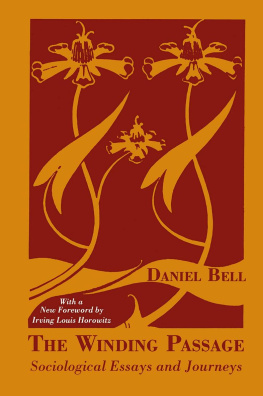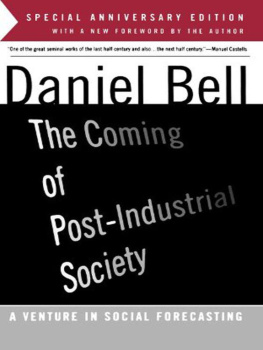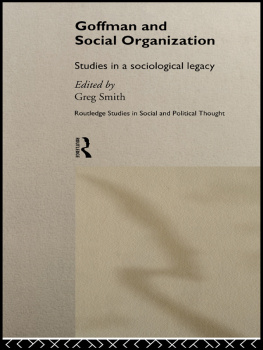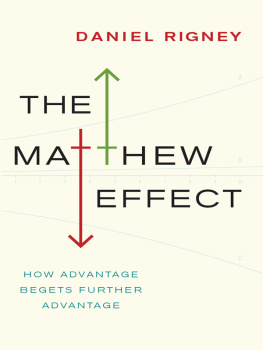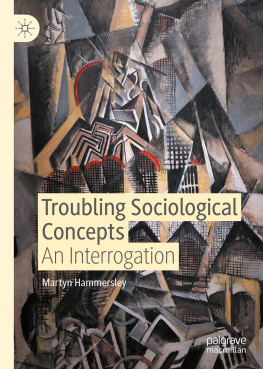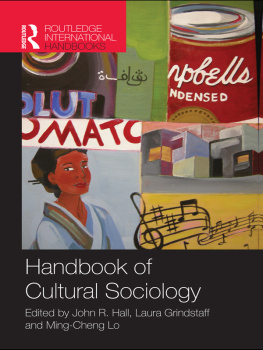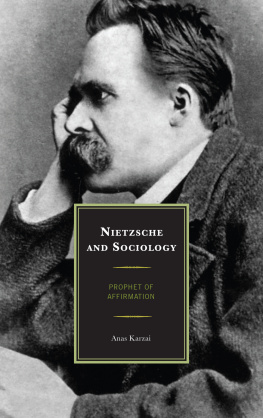The Winding Passage
Originally published in 1980 by ABT Associates Inc.
Published 1991 by Transaction Publishers
Published 2019 by Routledge
2 Park Square, Milton Park, Abingdon, Oxon OX14 4RN
52 Vanderbilt Avenue, New York, NY 10017
Routledge is an imprint of the Taylor & Francis Group, an informa business
New material this edition copyright 1991 by Taylor & Francis
All rights reserved. No part of this book may be reprinted or reproduced or utilised in any form or by any electronic, mechanical, or other means, now known or hereafter invented, including photocopying and recording, or in any information storage or retrieval system, without permission in writing from the publishers.
Notice:
Product or corporate names may be trademarks or registered trademarks, and are used only for identification and explanation without intent to infringe.
Library of Congress Catalog Number: 90-26677
Library of Congress Cataloging-in-Publication Data
Bell, Daniel
The winding passage: sociological essays and journeys / Daniel Bell;
with a new foreword by Irving Louis Horowitz
Reprint. Originally published: Cambridge, Mass.: Abt Books, c1980.
Includes bibliographical references and index.
ISBN 0-88738-899-X
1. Sociology. 2. Social History19601970. 3. Social history1970
4. Social change. I. Title.
[HM24.B386 1991]
301dc20
9026677
CIP
ISBN 13: 978-0-88738-899-6 (pbk)
ISBN 13: 978-1-138-53950-l (hbk)
For Nathan and Lochi Glazer
la vie lunga e l cammino malvagio,
e gi il sole a mezza terza riede.
The way is long and the road is hard,
and already the sun is at mid-tierce.
Canto xxxiv, 9697
Montaigne long ago established the criteria for style and substance in the essay form: it must be well written, precise, with a focused theme and moral purpose directed to the question: Que sais-je? These essays by Daniel Bell, written between 1960 and 1980, live up to the highest standards of the essay. Bell brings to his task not only the twenty years of sociology herein covered but a previous twenty years of journalism that obviously contribute to the pungent, targeted nature of his enterprise. His deeply reflective preface itself is well worth the price of the book. I initially thought of excerpting some choice passages, only to decide that there are too many eloquent and piquant passages to choose only a few. Anyhow, Bell is entitled to state for himself how these seventeen essays came to be written and included in this volume.
This collection represents not simply the work of a highly civilized freischwebende Intelligenz in the best sense of that much-abused phrase but the sifted excellence of a sociologist in mid-passage. We should all read these papers not only to be in the presence of a vital intellectual force but also to evaluate what that force stands for in specifically professional terms. I am not certain whether Bell claims too much or too little for his sociology, for its significance is less the relationships between goods and information than between the good and the knowable. This formulation may sound a trifle soft methodologically, but it has the merit of drawing attention to Bells special skill at infusing social life with deeply philosophical meaning.
We enter Bells world only when we make a commitment to close encounters of a philosophic kind. I do not have in mind ideological postures or metaphysical abstractions, but the constancy of asking the Aristotelian question: What are the causes and consequences of bringing about change in the realms of being? And how are those realms carved up in our age along social, economic, and cultural dimensions? What keeps these large issues in manageable proportion is Bells unswerving journalistic dedication to the concrete. The play of abstract ideas in concrete operational settings is what sets this mans work apart from that of his fellow sociologists.
The Winding Passage is divided into five parts and seventeen chapters; each of them represents areas of research in which Bell has become well known. In fact, not a few of the essays are distilled versions or microcosms of those larger works. Many themes in Prophets of Utopia were taken up in The End of Ideology. Techne and Themis extends positions mapped out in The Coming of Post-Industrial Society. And the final section, Culture and Beliefs, echoes many of the sentiments expressed in The Cultural Contradictions of Capitalism. This is not to suggest that these essays are somehow less valuable or valid for having antecedents or descendants; quite the contrary, a knowledge of Bells larger works will make reading these essays a double treat: first, they illumine his sociological sense of the world; and second, they amplify the larger works by Bell on similar subjects.
I have no quarrel at all with the first section on technology. Indeed, these two essays contain some of the best thinking by a sociologist on the relationships of technology to society since Ernest Burgess in the 1930s and Fred Cottrell in the 1950s. But I am somewhat less certain that he has resolved the problem of the relationships of the new technology to the social system any more than his sociological forebears. Even if we accept the Greek distinction between a material culture in progress and a moral culture in eternal recurrent cycle, we still cannot seem to open the windows on the monads. That is to say, although modernity bursts the walls of technology in the early essays, it turns out that in the later essays modernity itself seems to be bankrupt. For Bell, the new code word of the age is not so much progress as limits. But then, we might well ask, what is the connection between the technological and the sacral? There are many teasing indicators of new combinations and permutations, but slender connective tissue to the dialectic. The monads remain sealed atomic parts, shrouded in the mystery of Being transformed into culture.
It may be too burdensome to expect a series of linkages in a retrospective volume. It is better to read each essay as a separate analytic framework with a moral charge behind it. Read in such a way, each essay is breathtaking in the range of information and quality of imagination. The essay, The End of American Exceptionalism, is an especially stunning example of Bells quintessential liberalism, and probably his lingering socialism. Starting with the problem of why socialism has not come to American shores, a myriad of prophecies notwithstanding, he emphasizes the qualities of the legal and constitutional system in the New World, rather than emphasizing economic well-being, as have earlier explanations by Leon Samson and Seymour Martin Lipset. If Bell is correct that American exceptionalism has passed away, world capitalism has clearly not dissolved. If anything, the weakening of American capitalism and the wider distribution of world resources and wealth, has been abetted by the addition of new players on the world scene, often at the expense of the American dominion. That the Eurodollar replaces the American dollar, or that natural resources replace consumer goods as major commodities of value may reduce American exceptionalism, may increase moral anguish, but neither necessarily impinges on the character of socioeconomic arrangements on a worldwide basis. A peculiar variety of American myopia prevents Bell from developing an appropriate international frame of reference in which to assess the present-day United States.
It is in the nature of such a volume that each reader engage the author in private dialogue. It is perhaps best to permit each reader to argue with

